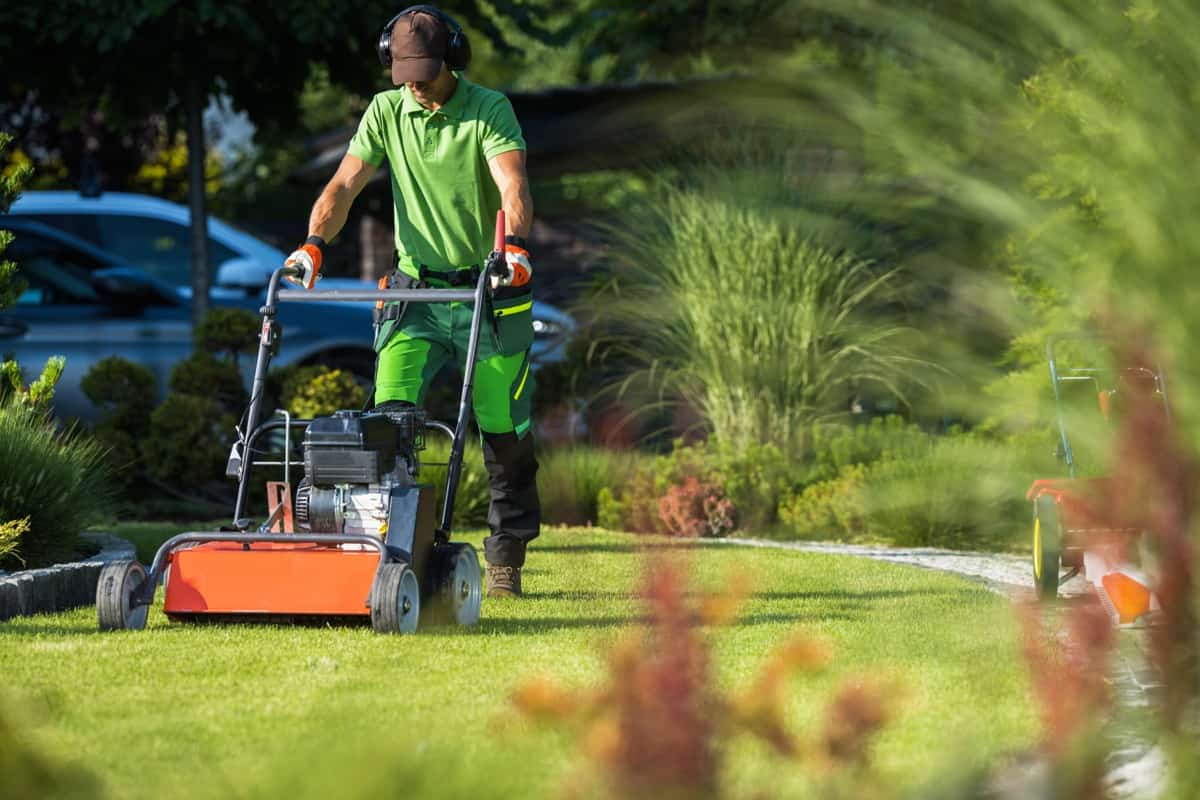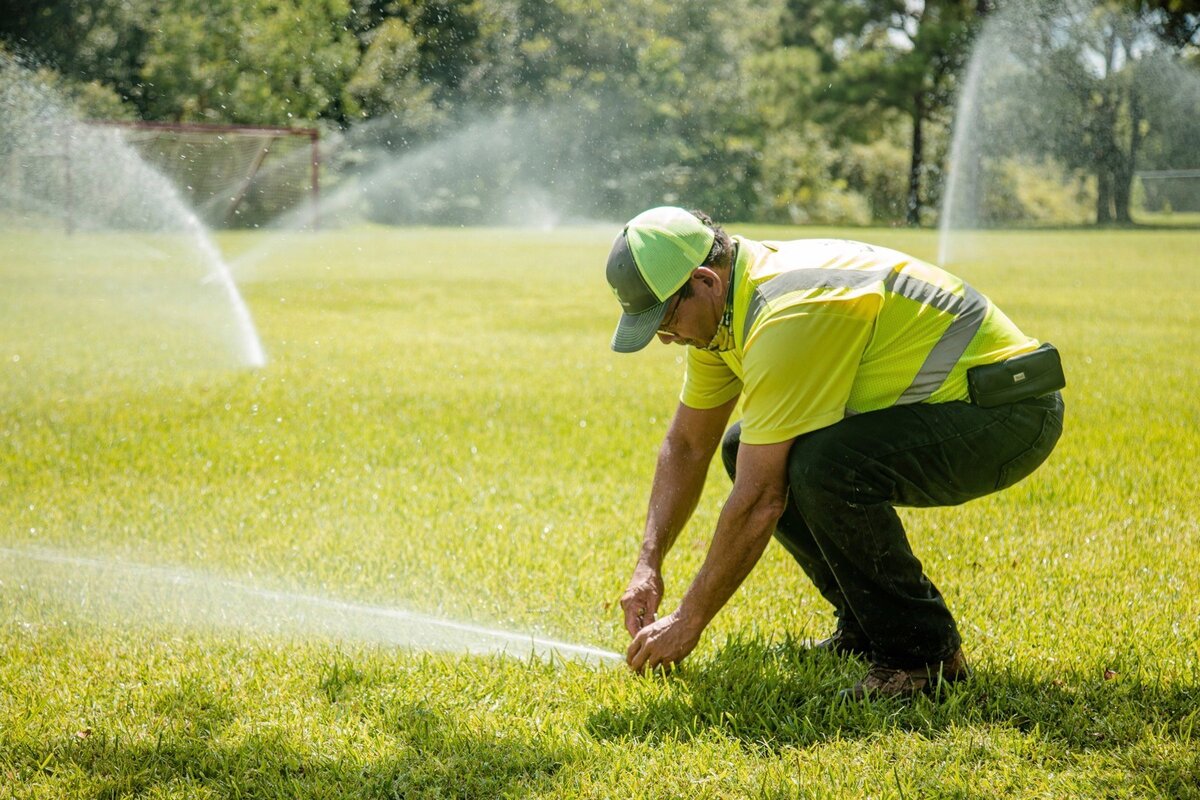Home>Gardening Basics>Getting Started>How To Start A Landscaping Business In Florida


Getting Started
How To Start A Landscaping Business In Florida
Modified: January 22, 2024
Discover the essential steps to getting started with a landscaping business in Florida. From licensing to equipment, learn how to kickstart your entrepreneurial journey.
(Many of the links in this article redirect to a specific reviewed product. Your purchase of these products through affiliate links helps to generate commission for Chicagolandgardening.com, at no extra cost. Learn more)
Table of Contents
- Introduction
- Step 1: Research and Planning
- Step 2: Obtain Required Licenses and Permits
- Step 3: Set Up Your Business Structure
- Step 4: Secure Insurance Coverage
- Step 5: Purchase Equipment and Tools
- Step 6: Develop a Marketing Strategy
- Step 7: Establish Pricing and Payment Policies
- Step 8: Build a Network of Suppliers and Contractors
- Step 9: Hire and Train Employees
- Step 10: Provide Excellent Customer Service
- Conclusion
Introduction
Starting a landscaping business in Florida can be an exciting and rewarding venture. With its warm climate and abundant outdoor spaces, there is a high demand for professional landscaping services in the Sunshine State. Whether you are a seasoned green thumb or have a passion for transforming outdoor spaces, starting your own landscaping business can pave the way for financial independence and personal fulfillment.
However, like any other business, starting a landscaping business requires careful planning, preparation, and attention to detail. From obtaining the necessary licenses and permits to developing a marketing strategy, there are several key steps that you need to take in order to set yourself up for success. This guide will provide you with a comprehensive roadmap to help you navigate the process of starting a landscaping business in Florida.
Before diving into the practical steps, it’s important to note that a strong foundation in landscaping knowledge and skills is essential. Understanding plant species, soil types, irrigation systems, and design principles will not only help you deliver exceptional services but also set you apart from your competition. If you have limited experience in landscaping, consider enrolling in relevant courses or gaining practical experience through internships or apprenticeships.
Now, let’s explore the crucial steps involved in launching your landscaping business in Florida.
Step 1: Research and Planning
Before embarking on your landscaping business journey in Florida, it’s important to conduct thorough research and create a well-defined plan. This step will lay the foundation for your success and help you make informed decisions along the way.
Start by researching the landscaping industry in Florida. Familiarize yourself with current trends, market demands, and competition. Identify your target audience and understand their preferences and needs. This will enable you to tailor your services and marketing strategies to attract and retain customers.
Next, create a business plan that outlines your goals, budget, and marketing strategies. Determine the services you will offer, such as garden design, lawn maintenance, tree care, or irrigation system installation. Calculate the initial investment required for equipment, tools, and supplies. Develop a pricing strategy that aligns with market rates while ensuring profitability.
Additionally, consider the legal and logistical aspects of your business. Research the licenses and permits required to operate a landscaping business in Florida. Familiarize yourself with local zoning regulations and environmental guidelines to ensure compliance. You may also need to obtain liability insurance to protect your business from potential risks.
As part of your research and planning, it’s essential to establish a strong brand identity. Decide on a memorable business name and create a unique logo that reflects your services and values. Build a professional website that showcases your portfolio, services, and contact information. Utilize social media platforms to engage with potential customers and establish an online presence.
By conducting thorough research and developing a well-defined plan, you will be equipped with the knowledge and strategies necessary to launch and grow your landscaping business in Florida.
Step 2: Obtain Required Licenses and Permits
Operating a landscaping business in Florida requires obtaining the necessary licenses and permits to ensure compliance with legal and regulatory requirements. This step is crucial as it establishes your credibility and protects your business from potential legal issues.
Start by researching the specific licenses and permits required for operating a landscaping business in Florida. The Department of Business and Professional Regulation (DBPR) and local government agencies oversee licensing and permitting for various professions, including landscaping.
Depending on the scope of your services, you may need different licenses. For example, if you plan to offer pest control services, you may need a Pesticide Applicator’s License from the Florida Department of Agriculture and Consumer Services. If you plan to install irrigation systems, you may need a license from the Florida Irrigation Contractors’ Licensing Board.
Additionally, check if your local city or county requires a business tax receipt or occupational license to operate as a landscaper. Contact the local government offices or visit their websites to understand the specific requirements and procedures for obtaining these licenses and permits.
When applying for licenses, you may be required to provide proof of liability insurance, evidence of experience or education in landscaping, and payment of application fees. It’s important to review the application requirements thoroughly and submit all the necessary documentation to avoid delays in the licensure process.
Once you have obtained the required licenses and permits, it’s crucial to ensure that they remain valid and up to date. Stay informed about any renewals or continuing education requirements to maintain compliance with state and local regulations.
By obtaining the necessary licenses and permits, you demonstrate professionalism and establish a trustworthy reputation in the landscaping industry in Florida. It also provides peace of mind to your clients knowing that they are hiring a licensed and compliant service provider.
Step 3: Set Up Your Business Structure
Setting up the right business structure is essential for the success and sustainability of your landscaping business in Florida. Choosing the appropriate structure will determine how your business is organized, taxed, and governed legally.
There are several business structures to consider, including sole proprietorship, partnership, limited liability company (LLC), and corporation. Each structure has its own advantages and disadvantages, so it’s important to research and choose the one that best suits your specific needs and long-term goals.
A sole proprietorship is the simplest form of business structure, where you operate the business as an individual. While it is easy to set up and has minimal paperwork, the owner is personally responsible for all aspects of the business, including debts and liabilities.
A partnership involves two or more individuals who share ownership and responsibilities. It’s important to establish a partnership agreement that clearly outlines the roles, profit-sharing, and decision-making processes to avoid conflicts and ensure smooth operations.
An LLC provides personal liability protection while offering flexibility in terms of taxation and management structure. It combines the benefits of a corporation and a partnership, allowing owners to separate their personal and business liabilities.
On the other hand, a corporation is a separate legal entity from its owners. It offers limited liability protection and allows for a more formal structure with shareholders, directors, and officers. However, it requires more paperwork and has specific legal and tax obligations.
Consult with a qualified attorney or an accountant to understand the legal and tax implications of each business structure. They can guide you in selecting the best option based on your specific circumstances and long-term objectives.
Once you have chosen a business structure, you will need to register your business with the appropriate government agencies. This may include registering your business name, obtaining an Employer Identification Number (EIN), and filing the necessary documents with the Florida Department of State.
By setting up the right business structure, you will establish a solid foundation for your landscaping business in Florida and ensure that it operates effectively and in compliance with the law.
Step 4: Secure Insurance Coverage
Securing proper insurance coverage is a crucial step in protecting your landscaping business in Florida. As a landscaping professional, you face various risks and liabilities associated with your work, including property damage, bodily injury, and equipment theft.
One of the most important insurance policies for a landscaping business is general liability insurance. This coverage protects you from claims arising from third-party bodily injuries or property damage caused by your work. It provides financial protection by covering legal fees, medical expenses, and damages awarded in lawsuits.
It’s also essential to consider commercial property insurance to protect your physical assets, such as equipment, tools, and vehicles. This coverage safeguards your business against losses resulting from theft, fire, or natural disasters.
Additionally, workers’ compensation insurance is necessary if you have employees. It provides coverage for medical expenses and lost wages in case of work-related injuries or illnesses. Compliance with workers’ compensation laws is mandatory in Florida, even if you have just one employee.
Consult with an insurance agent who specializes in commercial insurance for the landscaping industry. They can assess the specific risks associated with your business and recommend appropriate coverage options.
When selecting an insurance provider, consider their reputation, customer service, and financial stability. Compare quotes from different companies to ensure you’re getting the best coverage at a competitive price.
Regularly review your insurance coverage as your business grows and evolves. Make any necessary adjustments to ensure you have adequate protection at all times.
By securing comprehensive insurance coverage, you can protect your landscaping business from unforeseen events and potential financial losses. This will give you peace of mind and allow you to focus on providing exceptional services to your clients.
Step 5: Purchase Equipment and Tools
Acquiring the right equipment and tools is essential for running a successful landscaping business in Florida. The equipment you choose will depend on the specific services you offer and the scale of your operations.
Start by making a comprehensive list of the essential equipment and tools you will need. This may include lawnmowers, trimmers, leaf blowers, chainsaws, hand tools, irrigation equipment, and vehicles for transportation. Consider the quality, durability, and efficiency of the equipment you purchase, as these factors will impact your productivity and the quality of your work.
When selecting equipment, it’s important to strike a balance between affordability and quality. Consider purchasing new or slightly used equipment from reputable suppliers or dealers. Research customer reviews and seek recommendations from fellow landscapers to ensure you’re investing in reliable and efficient equipment.
Don’t forget to budget for ongoing maintenance and repairs of your equipment. Regular maintenance, such as oil changes and blade sharpening, will prolong the lifespan of your tools and keep them in optimal condition.
Consider investing in technology and software solutions that can streamline your business operations. This may include specialized landscape design software, project management tools, and accounting software to manage invoices, expenses, and payroll.
Proper storage and organization of your equipment is also essential. Ensure you have a secure and weather-resistant storage area or a dedicated trailer to transport your tools and equipment to job sites.
As your business grows, you may need to expand your equipment inventory to handle larger projects or offer additional services. Regularly reassess your equipment needs and budget for upgrades or replacements in the future.
By investing in high-quality equipment and tools, you will enhance your efficiency and productivity, enabling you to deliver exceptional results to your clients. This will contribute to the reputation and success of your landscaping business in Florida.
Step 6: Develop a Marketing Strategy
Developing a comprehensive marketing strategy is essential for attracting and retaining customers for your landscaping business in Florida. A well-executed marketing plan will help you build brand awareness, generate leads, and establish a strong presence in the market.
Start by defining your target audience. Identify the demographics, psychographics, and geographic location of your ideal customers. This will enable you to tailor your marketing messages and choose the right channels to reach them effectively.
One effective marketing strategy is creating a professional and user-friendly website that showcases your services, portfolio, and testimonials. Optimize your website for search engines to improve its visibility in online searches. Consider adding a blog to share informative content related to landscaping, which can help establish you as an authority in the industry.
Utilize social media platforms to engage with potential customers and showcase your work. Create compelling content, including images and videos, that highlight your landscaping projects and expertise. Offer tips and advice to your followers to demonstrate your knowledge and build trust.
Make use of online directories and review websites to increase your online presence. Encourage satisfied customers to leave positive reviews, as these play a significant role in building your reputation and attracting new clients.
Networking is crucial in the landscaping industry. Attend local events, join professional associations, and connect with other professionals in related fields, such as architects or real estate agents. Building relationships and partnerships can open doors to new opportunities and referrals.
Consider traditional marketing methods as well, such as print advertising in local newspapers or magazines. Distribute flyers or postcards in targeted neighborhoods to reach potential customers directly.
Offer special promotions or discounts to attract new customers and encourage repeat business. Consider creating seasonal packages or loyalty programs to reward your clients and incentivize referrals.
Track and analyze the effectiveness of your marketing efforts. This will help you identify what’s working and what’s not, allowing you to make informed adjustments to your strategy.
Remember, consistency is key when it comes to marketing your landscaping business. Stay active and engaged across all marketing channels to maintain visibility and build a strong brand presence in the competitive Florida market.
Step 7: Establish Pricing and Payment Policies
Establishing clear pricing and payment policies is crucial for running a successful landscaping business in Florida. Setting the right prices and ensuring prompt payment will help you maintain profitability and cash flow.
Start by conducting a competitive analysis to determine the average market rates for landscaping services in your area. Consider factors such as the complexity of the project, the size of the lawn or garden, and the time and resources required to complete the job.
Take into account all the costs associated with your business, including labor, materials, equipment, and overhead expenses, when determining your pricing. Factor in a reasonable profit margin to ensure your business remains sustainable and can grow over time.
Consider offering different pricing structures, such as flat rates, hourly rates, or project-based pricing, depending on the type of services you provide. Clearly communicate your pricing structure to clients before starting any work to avoid misunderstandings or disputes.
Establishing payment policies is equally important. Determine acceptable forms of payment, such as cash, checks, or electronic transfers, and clearly communicate this to your clients. Consider accepting credit cards to provide convenience and flexibility to your customers.
Set clear expectations for payment terms, including due dates and any late payment penalties. Consider offering incentives for early payments to encourage prompt payment.
Utilize accounting software or services to keep track of your invoices and payments. Regularly follow up on outstanding payments to ensure timely collection.
If you are working with commercial clients or property management companies, consider setting up contracts or service agreements that outline the terms and conditions of your services, pricing, and payment terms. This can provide both parties with clarity and protection.
Communicate your pricing and payment policies clearly to your clients in writing, such as on your website or in your estimate or contract documents. This will help manage expectations and avoid any disputes or misunderstandings.
By establishing fair and transparent pricing and payment policies, you will build trust with your clients and ensure a smooth financial operation for your landscaping business in Florida.
Step 8: Build a Network of Suppliers and Contractors
Building a strong network of reliable suppliers and contractors is essential for the success of your landscaping business in Florida. These relationships will provide you with access to high-quality materials, equipment, and specialized services that are crucial for delivering excellent results to your clients.
Start by researching and identifying reputable suppliers in your area. Look for suppliers who offer a wide range of landscaping materials, such as plants, mulch, soil, fertilizers, and hardscape materials. Consider factors such as pricing, quality, and customer service when selecting your suppliers.
Establishing long-term relationships with your suppliers can be mutually beneficial. They may offer discounts or preferential treatment to loyal customers. Regularly communicate with your suppliers to stay updated on new products, availability, and any special promotions.
In addition to suppliers, consider building a network of reliable contractors who specialize in services you may not provide in-house, such as tree removal, irrigation installation, or hardscaping. Establishing these partnerships will enable you to take on a broader range of projects and meet the diverse needs of your clients.
When selecting contractors, verify their credentials, licenses, and insurance coverage to ensure they meet the necessary requirements. Seek recommendations from colleagues or industry associations to find trusted contractors. Maintain open lines of communication and ensure clear agreements are in place to avoid any misunderstandings during collaborative projects.
Regularly evaluate the performance and reliability of your suppliers and contractors. If any issues arise, address them promptly and professionally to maintain a positive working relationship.
By building a reliable network of suppliers and contractors, you will ensure a steady supply of quality materials and access to specialized services. This will contribute to the success and reputation of your landscaping business in Florida.
Step 9: Hire and Train Employees
Hiring and training the right employees is crucial for the growth and efficiency of your landscaping business in Florida. An experienced and well-trained team will not only help you deliver exceptional services but also contribute to the overall success of your company.
Start by defining the roles and responsibilities needed for your business. Determine the number of employees based on the workload and the services you offer. Consider hiring individuals with experience in the landscaping industry who are knowledgeable about local plant species, irrigation systems, and maintenance techniques.
Develop comprehensive job descriptions and clearly outline the qualifications, skills, and experience required for each position. Advertise job openings on relevant platforms such as job boards, industry websites, and social media.
Screen potential candidates carefully and conduct thorough interviews to assess their skills, work ethic, and compatibility with your team. Check references and conduct background checks to ensure the reliability and trustworthiness of your potential hires.
Once you have hired your team, provide thorough training to ensure they have the necessary skills and knowledge to perform their roles effectively. This may include training on proper equipment operation, safety protocols, landscaping techniques, and customer service.
Continuously invest in the professional development of your employees. Provide opportunities for them to attend workshops, seminars, or industry conferences to enhance their skills and knowledge. This will not only improve their performance but also boost employee morale and loyalty.
Create a positive work environment that promotes teamwork, open communication, and growth opportunities. Recognize and reward exceptional performance to motivate your employees and foster a sense of pride and loyalty within your team.
Regularly communicate with your employees and address any concerns or issues promptly. Encourage feedback and provide constructive criticism to help them improve and grow in their roles.
By hiring and training the right employees, you will create a skilled and motivated team that can contribute to the success and growth of your landscaping business in Florida.
Step 10: Provide Excellent Customer Service
Providing excellent customer service is the key to establishing a loyal customer base and ensuring the long-term success of your landscaping business in Florida. Satisfied customers not only become repeat clients but also serve as advocates for your business, referring you to their friends, family, and neighbors.
Begin by developing clear and effective communication channels with your customers. Be responsive to their inquiries, requests, and concerns, whether it’s via phone, email, or social media. Set clear expectations regarding project timelines, costs, and scope of work to avoid any misunderstandings.
Listen actively to your customers’ needs and preferences. Tailor your services to meet their unique requirements and provide personalized recommendations. Show empathy and understanding, offering solutions or alternatives when necessary.
Deliver high-quality workmanship on every project. Pay attention to detail, ensuring that every aspect of the job meets or exceeds the expectations of your clients. Strive for excellence in all aspects of your work, whether it’s lawn care, garden design, or hardscaping installations.
Make sure to adhere to agreed-upon timelines and complete projects within the promised timeframe. Communicate any delays or changes promptly and transparently. This will build trust and confidence in your reliability as a landscaping service provider.
Regularly follow up with your customers after completing a project to gauge their satisfaction. Ask for their feedback and address any concerns or issues promptly and professionally. Continuously strive to improve your services based on customer feedback.
Go the extra mile to exceed customer expectations. Offer additional services or small gestures of appreciation, such as offering tips for plant maintenance or providing seasonal landscaping tips. These small touches demonstrate your commitment to customer satisfaction.
Encourage your satisfied customers to leave reviews and testimonials on your website, social media pages, or review platforms. Positive word-of-mouth referrals can significantly impact your business’s growth and reputation.
Remember, excellent customer service is an ongoing commitment. Continuously evaluate and improve your customer service processes and ensure that your team is trained to provide exceptional service at every interaction.
By providing excellent customer service, you will build a loyal customer base and establish a strong reputation for your landscaping business in Florida. Happy customers will become repeat customers and ambassadors for your business, contributing to its growth and success.
Conclusion
Starting a landscaping business in Florida requires careful planning, preparation, and a commitment to delivering exceptional services. By following the ten steps outlined in this guide, you can set yourself up for success in the competitive landscaping industry.
From researching and planning to providing excellent customer service, each step plays a vital role in establishing and growing your business. By conducting thorough research, obtaining the necessary licenses and permits, and setting up the right business structure, you create a strong foundation for your landscaping venture.
Securing insurance coverage, purchasing the right equipment and tools, and developing a robust marketing strategy will help you attract and retain customers while protecting your business from potential risks. Building a network of suppliers and contractors, hiring and training skilled employees, and providing excellent customer service are crucial for delivering outstanding results and building a loyal customer base.
Remember, success in the landscaping business is not achieved overnight. It requires dedication, continuous learning, and a focus on delivering exceptional craftsmanship and customer service. Stay informed about the latest industry trends, technologies, and best practices to stay ahead of the competition.
By following these steps and staying committed to your vision, you can build a thriving landscaping business in Florida. Embrace the challenges, adapt to changes, and always strive for excellence in every aspect of your work. With determination and a customer-centric approach, you have the potential to achieve long-term success and make a positive impact on the outdoor spaces across the Sunshine State.









